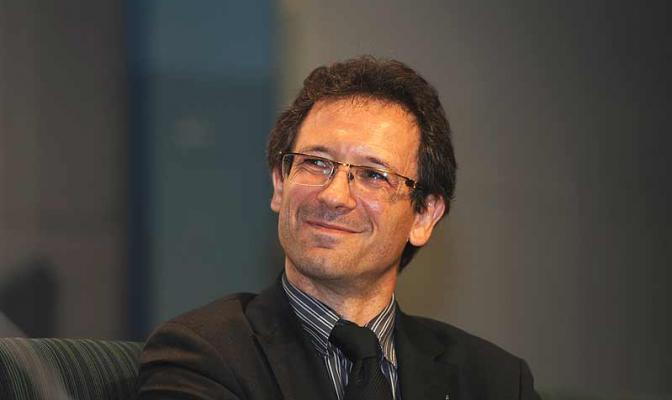ISLAMABAD, : Senior Research Fellow, Center for International Studies and Research (CERI) in Paris, Prof. Christophe Jaffrelot on Friday said the Indian Muslims’ marginalization under Hindutva regime was deteriorating consistently resulting economic and educational deprivation.
He made these remarks during a roundtable discussion titled “The Plight of Minorities under Modi’s India” as the guest speaker.
Prof. Jaffrelot while opening the discussion, briefed the participants that his research focused on collective endeavor to document the condition of Indian Muslims today, that relied on qualitative and quantitative data based on ethnographic studies through interviews of the victims and people hailing from Muslim community in India.
He added that the marginalization of Indian Muslims was based on social and economic status of Indian Muslim and their education in India.
“On many grounds the situation was not good but it deteriorated further at many new grounds. The Muslim communities have always been decapitated since 1947,” Dr Jaffrelot said.
The French social scientist on South Asian minorities said the representation of Muslims among Indian Civil Service (IAS) officers between 1978-2016, joining IAS, has never been more than 7 percent, whereas the Muslims comprise of 14.5 percent of the total population of India as per the 2011-2021 census.
The situation, he said in Police department was also not different as the gap widened due to increased under representation of Muslims in IAS, adding, “The Muslims of IIOJK not included in IAS which is not more than 3-5 percent.”
The Professor commented that the Muslims over representation was only in jails. Moreover, while considering the appointments in judiciary, Supreme Court appointments of justices, there were not more than three Muslims since 1950s that had reduced to only one at present. He added that there was declining representation of Muslims at the national and state level assemblies as the Muslim members of the Parliament (MPs) in Lokh Sabha from 1980-2019 which indicated quasi proportion of Muslims in the Lokh Sabha (national assembly) that was less than 5 percent post-2014 and less than 4.9 percent by 2019.
He commented that the decline in Muslim candidates and members over the decades in Lokh Sabha was directly linked to rise of the Bharatiya Janata Party (BJP).
“State politics is significant in India. In Andra Pradesh, there were 89 seats in Lokh Sabha, whereas Samaj Wadi Party in 2012 rose to power and had 17 percent Muslims’ representation. However, Yogi Adityanath’s rise in that state led to stark decline in number of Muslim MPs,” he added.
In Gujrat, he said the representation of Muslims was not more than 2-3 percent whereas West Bengal and Kerala are interesting states as their is no BJP rule. “West Bengal has an increase in number of Muslim MPs due to state policy under Mamata Banerjee,” he added.
In 2019, the per Capita wealth at large of Muslims and Hindus had a huge gap, whereas the share of the wealth of Muslims was only 9.5 percent (14.5 percent population of India), Hindus upper cast are only 15 percent of population with 36.1 percent share in wealth, he added.
“Muslims have hardly access to government jobs and there are few Muslims making it with only 6.5 percent of the public sector employees . Most of the Indian Muslims are self employed (42 percent), 22 percent are casual labours and 63 percent are in poor socioeconomic condition,” he added.
Prof. Jaffrelot noted that the Indian Human Development Survey was the only source providing caste wise situation of India. “It shows that an increasingly large number of dalits (lower caste Hindus) are more represented than Muslims who are scheduled caste of 15 percent of public sector jobs. Muslims are twice poor than lower caste Hindus,” he added.
Moreover, in education sector, 4.3 percent Muslims were graduates in India and Hindus were twice more than that of the Muslims. “There is difference in the Muslim’s Education of the North and the South. In Uttar Pradesh, Muslims population among graduates had declined from 14.1 percent to 12 percent who are attending higher education institutions,” he added.
The reasons to the it were mainly the lack of protection of Muslims beyond their community, money problem and lack of access to wealth barring Muslims from education.
Earlier, in his welcome remarks, Director General, ISSI, Ambassador (R) Sohail Mahmood said that Prof. Jaffrelot was one of the leading scholars on South Asia, who have prolifically written on minorities in India.
He pointed out that India had underwent great change after the rise of the BJP regime under its Hindutva ideology aimed to turn India into a Hindu state.
The mushrooming of vigilante groups, public conflicts and the rising extremism had accentuated minorities discrimination in India, he said, adding, “The conversion of local Muslim majority into Minorities in Indian Illegally Occupied Jammu and Kashmir (IIOJK) is repugnant to international laws and the UN resolutions.”
Dr Christopher had meticulously mapped India’s extremism paradigm and designs who has rigorous scientific reasons for three democracies that had evolved since partition and incurred implications on the region that had detrimental effects on the middle and lower castes.
In current phase, India was transforming into Rashtriya Hindu Raj to Hindu Authoritarian Raj, he added.



Comments are closed.